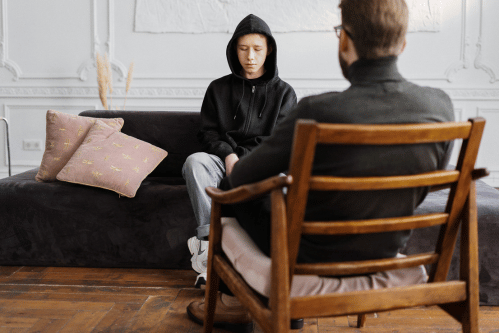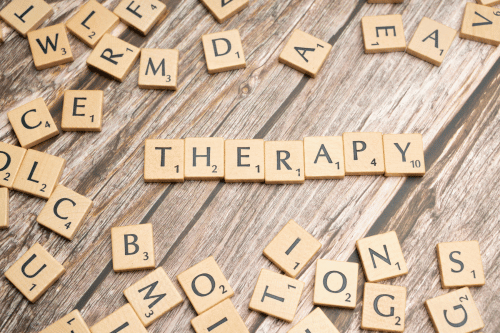
Sullivan Recovery
Benzodiazepine Detox Orange County
Benzodiazepines belong to a class of sedative and hypnotic medications often prescribed for anxiety, panic, epilepsy, or insomnia. Drugs like alprazolam, diazepam, clonazepam, lorazepam, and temazepam act on the GABA neurotransmitter in the brain, slowing activity and reducing stress. While these medications can be effective, long-term benzodiazepine use disorder or misuse can lead to addiction, physical dependence, and harmful behavior.
Benzodiazepine detox is a structured medical detox process designed to help a patient withdraw safely. At Sullivan Recovery, our Orange County detox program offers 24/7 monitoring, therapy, and medication management to reduce withdrawal symptoms and relapse risk. As an accredited treatment center, we combine psychology, mental health care, and substance abuse treatment to provide a safe space where patients can begin sobriety with confidence.
Our detox facility focuses on accessibility so every individual—including those with visual impairment or who rely on screen reader technology—can access resources. By aligning our services with web content accessibility guidelines, we ensure all patients can find help. Whether someone misused a dose of alprazolam or developed benzodiazepine use disorder after years of clonazepam, detox Orange County programs at Sullivan Recovery provide the foundation for long-term recovery.
Recognizing when someone needs benzo detox is critical to preventing overdose or relapse. Symptoms often include severe anxiety, panic attacks, insomnia, irritability, perspiration, or cravings for higher doses. Combining benzodiazepines with alcohol, fentanyl, or opioids such as oxycodone can also increase danger, as these substances depress the central nervous system.
Other warning signs include changes in memory, confusion, or erratic behavior linked to benzodiazepine use disorder. Patients may experience difficulty concentrating, mood swings, or reliance on drugs like diazepam, lorazepam, or alprazolam to function daily. Medical detox at an Orange County detox facility provides a safe space where withdrawal is supervised and health is stabilized.
If a patient cannot stop using benzodiazepines without experiencing stress, panic, or worsening mental health, detox becomes necessary. Sullivan Recovery offers therapy, dual diagnosis treatment, and medical supervision to help individuals overcome addiction. For those struggling with clonazepam or temazepam misuse, entering a rehab Orange County program ensures access to evidence-based treatment, medical detox, and recovery support that protects both brain and body health.

Benzodiazepines remain one of the most prescribed medications in the U.S., but misuse continues to rise. The National Institute on Drug Abuse (NIDA) reports that nearly 4.8 million people misused benzodiazepines in 2021, often involving drugs such as alprazolam, diazepam, lorazepam, clonazepam, or temazepam. Many cases involve combining benzodiazepines with alcohol, opioids, or fentanyl, which heightens the risk of overdose, respiratory failure, and brain damage.
Alcohol use is another leading concern, often requiring alcohol detoxification programs in Orange County. The California Health Care Foundation found that 8% of adults in California reported heavy alcohol use in the past month, highlighting the connection between alcohol and substance abuse. When alcohol is mixed with benzodiazepines or other sedatives, both act on the GABA neurotransmitter, creating dangerous effects that slow breathing, impair behavior, and increase the chance of medical emergencies.
Opiate and opioid misuse further compounds the problem, as many emergency department visits involve a combination of benzodiazepines and narcotics. For patients with benzodiazepine use disorder, statistics show that early intervention through detox Orange County services and ongoing benzodiazepine addiction treatment significantly improves health outcomes and reduces relapse risk.
Medical detox is the first step, but lasting sobriety requires structured outpatient rehab. After benzo detox, patients benefit from therapy, relapse prevention, and medication management that address both the physical dependence and psychological triggers of addiction. Sullivan Recovery’s rehab Orange County program is designed to maintain accessibility so patients can continue family, work, and community responsibilities while in treatment.
Therapy options include evidence-based models such as cognitive behavioral therapy, dialectical behavior therapy, and dual diagnosis care for patients with co-occurring mental health disorders. These approaches help patients manage stress, panic, anxiety, and insomnia without relying on sedatives or hypnotic drugs. By addressing both substance abuse and underlying psychology, patients learn healthier behavior patterns that protect long-term sobriety.
Outpatient rehab also supports recovery from related challenges, such as opioid misuse, alcohol dependence, or relapse risk after detox. Sullivan Recovery provides a safe space where patients can build coping skills, reduce cravings, and manage triggers that often lead to drug misuse. For those leaving a detox program, outpatient rehab in Orange County serves as the bridge from medical detox to lasting health.

At our Orange County detox facility, the treatment process begins with a full health screening. Clinicians review medical history, mental health conditions, dose levels, and past drug use. Patients are evaluated for dual diagnosis needs, including depression, anxiety, or opioid dependence.
The detox program uses evidence-based medication to ease withdrawal symptoms such as panic, insomnia, and anxiety. Depending on the patient’s condition, medications like buprenorphine, naltrexone, or other safe options may be used to reduce cravings. Medical staff monitor symptoms such as stress, perspiration, or seizure risk, ensuring detox is safe and effective.
Therapy is integrated into treatment from the start. Patients receive one-on-one counseling, group sessions, and relapse prevention planning. This combination supports both physical detox and long-term behavior change.
Access to care often depends on affordability, which is why Sullivan Recovery works with most major health insurance providers. Many insurance plans now cover medical detox, benzodiazepine addiction treatment, alcohol detoxification, and therapy under behavioral health benefits. Coverage may include services such as medication-assisted treatment, outpatient rehab programs, and mental health counseling for patients struggling with substance abuse.
For individuals without insurance, our admissions team offers flexible payment options to ensure no patient is denied care. Accessibility is a priority at our treatment center, and we focus on removing financial barriers so patients can enter detox programs quickly. Whether seeking help for benzodiazepine use disorder, alcohol dependence, or co-occurring opioid misuse, Sullivan Recovery provides pathways to treatment that fit a wide range of financial needs.
Lasting sobriety requires more than medical detox, which is why Sullivan Recovery emphasizes ongoing therapy, relapse prevention, and dual diagnosis care. Our outpatient rehab programs create a safe space for patients to continue treatment after benzo detox, helping them manage stress, anxiety, and insomnia without relying on sedatives or hypnotics.
Support extends beyond detox to include group therapy, psychology-based counseling, and education on how benzodiazepines affect the brain and GABA neurotransmitter. Patients learn to identify triggers such as alcohol, opioids, high stress, or social pressure, all of which can increase relapse risk. By addressing both mental health and substance abuse, patients build stronger behavior patterns that support lifelong sobriety.
Sullivan Recovery also prioritizes accessibility for every patient. Our resources are designed to follow web content accessibility guidelines, ensuring people with visual impairment or those using screen reader technology have equal access to care. Features such as optical character recognition, user interface improvements, and arrow keys navigation make recovery tools more inclusive.
If you or a loved one is struggling with benzodiazepine use disorder, entering a medical detox program is the safest way to start recovery. Sullivan Recovery’s Orange County detox facility provides evidence-based care, therapy, and long-term recovery planning to help patients manage addiction and achieve sobriety. Whether the drug involves alprazolam, diazepam, clonazepam, lorazepam, temazepam, or other sedatives, our treatment center offers expert support in a safe space.
Do not wait until relapse or overdose occurs. Contact Sullivan Recovery today to learn more about our benzodiazepine detox Orange County services, health insurance options, and outpatient rehab programs. Call now and begin the path toward a healthier life and lasting recovery.
The length of detox depends on the type of benzodiazepine used, the dose, and how long the patient has been taking it. Short-acting drugs like alprazolam may cause withdrawal symptoms within hours, while longer-acting drugs like diazepam can take several days. On average, medical detox lasts between 5 and 14 days, with extended support available if needed.
Detoxing at home is not recommended because withdrawal can cause seizures, panic, insomnia, and other dangerous symptoms. A medical detox program in Orange County provides safe monitoring, medication support, and therapy to reduce risks. Professional care also lowers the chance of relapse during the early stages of sobriety.
Doctors may prescribe longer-acting benzodiazepines such as diazepam or clonazepam in tapering doses to ease withdrawal. Other medications like buprenorphine, naltrexone, or antidepressants may be used if there are co-occurring opioid or mental health conditions. The goal is to stabilize the patient while reducing cravings and discomfort.
After detox, patients can enter outpatient rehab programs in Orange County that focus on therapy, relapse prevention, and dual diagnosis care. Support includes group sessions, dialectical behavior therapy, and coping strategies for managing anxiety and stress. This long-term approach helps patients transition safely into a life of sobriety.
We are available around the clock to assist you, every day of the year.
© 2024 Sullivan Recovery. All rights reserved.